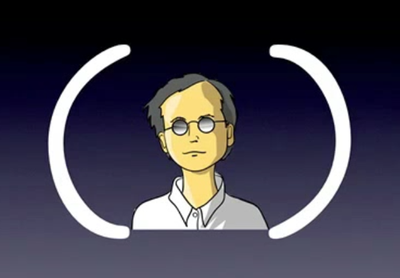Lessig on the Network we Need
Getting the Network the World Needs
 |
| Lawrence Lessig CC |
In this 2009 talk to the The Optical Fiber Communication Conference and Exposition (OFC) and the National Fiber Optic Engineers Conference (NFOEC), Lawrence Lessig talks about the kind of network the world needs to encourage innovation. He argues not against copyright but for copyright reform that allows enough openness for creativity and collaboration to flourish.
Possible uses of these videos for Education
Any or all of the segments could be used to provoke discussion of any of the following: copyright, fair-use, remix/mashups, piracy.
Part 1: Lawrence Lessig - Getting the Network the World Needs at OFC/NFOEC 2009
In the introduction, Lessig notes a quote from Aldous Huxley's The Doors of Perception (1954), "In days before machines men and women who wanted to amuse themselves were compelled, in their humble way, to be artists. Now they sit still and permit professionals to entertain them by the aid of machinery. It is difficult to believe that general artistic culture can flourish in this atmosphere of passivity." Lessig makes the point that before the 20th century, culture was a READ-WRITE system- one where everyday people read and participated as creators. The 20th century gave rise to mass media where everyday people became more like passive observers of culture watching culture created by professionals. The 20th century became a READ ONLY culture for many everyday people. In the 21st century things began to change, especially around 2000 when culture was available anytime-anywhere; everyday people could pick and choose what they wanted to see and hear with the internet and applications like iTunes. Lessig notes that a change occurred around 2004 with the introduction of sites like YouTube. He suggests that this new cultural period became once again a READ-WRITE culture where everyday people could take parts of culture and remix it to build on and create new cultural artefacts. The reformulated ideas and production create ongoing conversations. The net became a platform for innovation by anyone.
Part 2: Lawrence Lessig - Getting the Network the World Needs at OFC/NFOEC 2009
In this second section, Lessig talks about REMIX, the taking from other creative works and remixing to create something new. He discusses how remix is being used in films such as Tarnation, and areas like anime, and politics. Here he also talks about how sites like YouTube create a Call & Response culture that creates conversations that progress and build on each other.
Part 3: Lawrence Lessig - Getting the Network the World Needs at OFC/NFOEC 2009
In part 3, Lessig talks about how the techniques of remix have been democratized and how this remixing of culture is how kids today experience their world. For Lessig, the challenge is not a technical one but a legal one because what current copyright says is that this remixing is illegal. This frames today's youth as criminals and pirates. He discusses how the word "copy" has been interpreted in the past in relation to print to illustrate how digital does not fit. For Lessig, the architecture of the law is out of sync with today's world. He also discusses different types of economies: the commercial economy, the sharing economy that has nothing to do with money, and the new type of Hybrid economy.
Part 4: Lawrence Lessig - Getting the Network the World Needs at OFC/NFOEC 2009
In part 4, Lessig discusses the new Hybrid economies that make use of the sharing and collaboration of everyone. He speaks about Intenet sites like Flickr and Yelp who make money but use the masses to contribute and participate in their building. The platform for interactivity includes more and more of these hybrid models. In this section, he also talks about how the law is good at looking backward and doesn't account for our current world. He points out how many are obsessed with piracy and making children into pirates and imposing fines. Lessig is not for copyright infringement but he feels the law needs to focus on the distinction between copying, remix, amateurs and professional so that kids who remix will not be criminals. He believes the law needs to deregulate a significant space that allows freedom. He sees the war against peer-to-peer sharing as a failed war.
Part 5: Lawrence Lessig - Getting the Network the World Needs at OFC/NFOEC 2009
In part 5, Lessig suggests the need for licenses that redress the harms taking place, and he suggests that the world loosen some of the control and allow more openness.
Next up see how remixing, mashing is put into action in Rip: A Remix Manifesto
